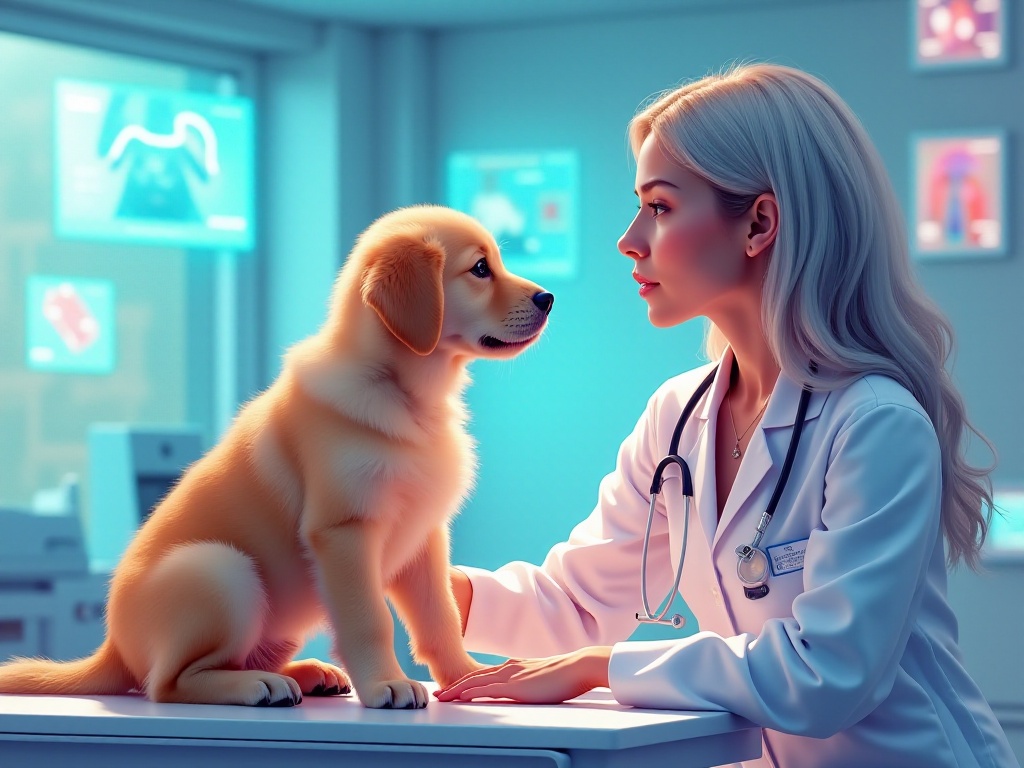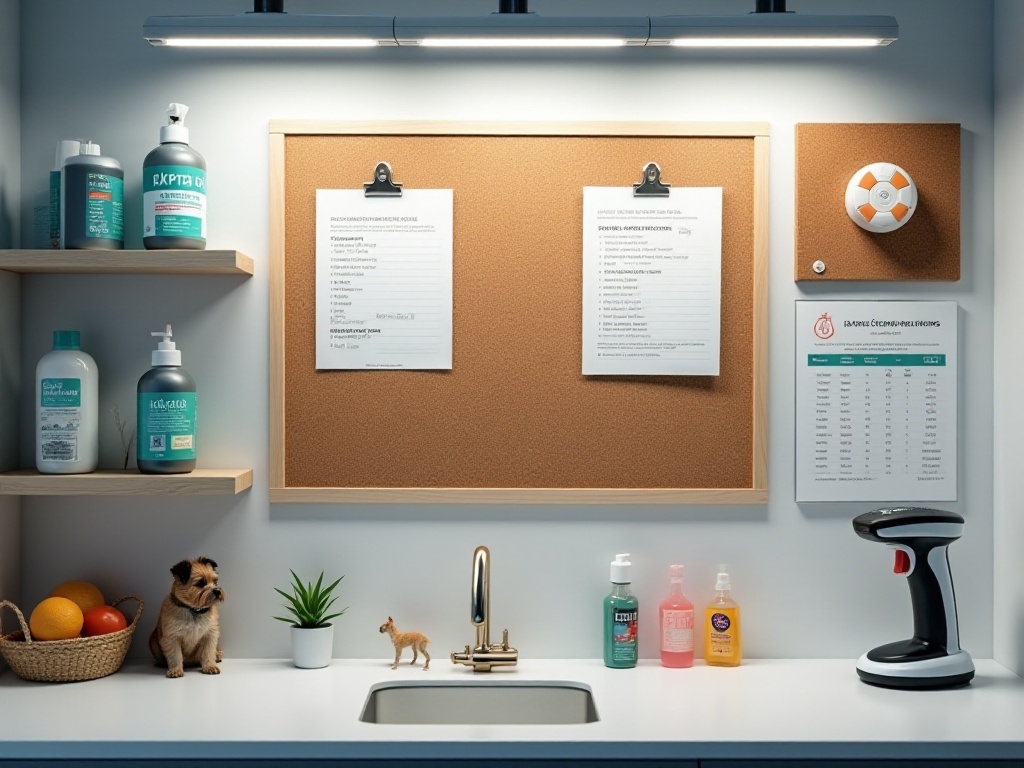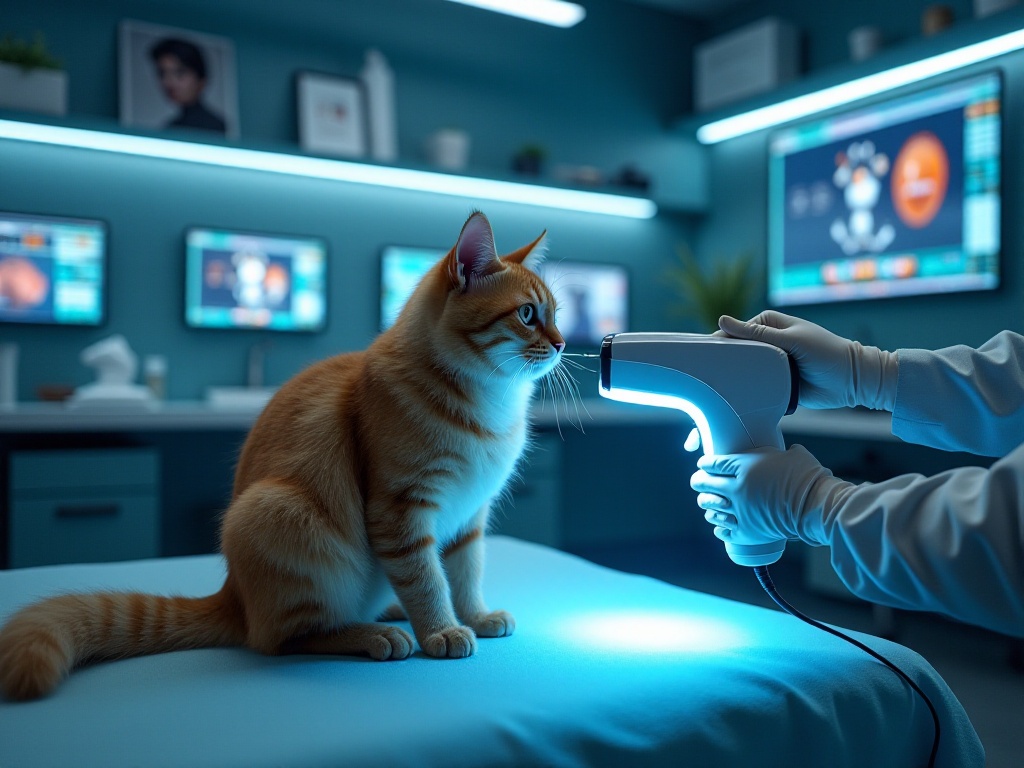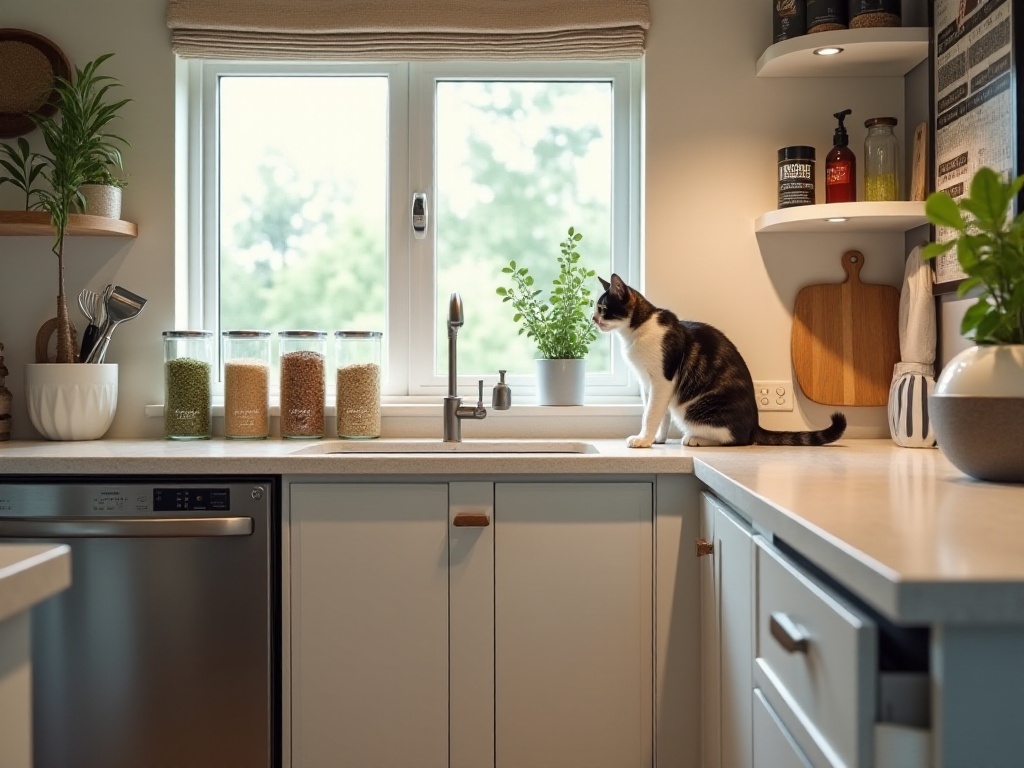
Introduction
Hello everyone, today I'd like to share some practical experience I've accumulated over years of pet keeping. As a seasoned pet parent who has raised both cats and dogs, I truly understand how challenging it is to take care of a little life. Being woken up by meowing in the middle of the night, or being dragged out for walks by our canine friends - that feeling of being too tired to keep your eyes open is something many pet parents can relate to. However, seeing their adorable expressions makes all the hard work worthwhile. With the right methods, raising pets isn't actually that difficult, so let me share my personal experience with you.
Health Comes First
When it comes to pet care, health is the most important issue. Just like humans need regular check-ups, our furry kids also need regular visits to the veterinarian. I recommend taking them for comprehensive examinations 1-2 times per year to detect any health concerns early. I remember when my cat had its first check-up, we discovered quite serious tartar buildup, but fortunately caught it early and got it cleaned in time, avoiding various potential complications.
Many novice pet parents face a frustrating problem when taking their pets to the doctor: cats absolutely refuse to enter carriers, and dogs get extremely anxious in cars. To be honest, I was the same way at first, with every vet visit turning into a wrestling match with my cat. Later I discovered these issues can actually be improved through training. For cats, the key is getting them used to being in carriers from a young age. I keep the carrier in the living room, lined with their favorite blanket and stocked with treats and toys. Gradually, cats will view the carrier as their safe space and no more chasing around the house.
As for dogs' fear of car rides, there's also a solution. When my Golden Retriever first arrived, she would tremble as soon as she got in the car. Later I started taking her for drives every week, not necessarily to the vet, but maybe to the park or pet store for treats. Gradually, she associated car rides with fun things. Now when she sees me grab the car keys, her tail won't stop wagging - she's more eager to go out than I am.
Vaccination is another crucial aspect that can't be ignored. Many new pet parents might think: vaccines are expensive, are they necessary? My advice is: absolutely! Dogs need vaccines for rabies, Lyme disease, etc., while cats need shots for panleukopenia, feline leukemia, etc. These should all be arranged during their early years according to veterinary recommendations. Although vaccines aren't cheap, compared to treatment costs after illness, they're incredibly cost-effective. I know a friend who thought vaccines were too expensive and didn't get them for their cat, which later contracted panleukopenia. Not only did they spend a fortune on treatment, but they still couldn't save the cat - I never want to see such lessons learned again.
Besides regular check-ups and vaccinations, daily health monitoring is also important. For example, regularly observe your pet's energy levels, appetite changes, and bowel movements. I record my pets' food intake daily, so I can quickly notice any abnormalities. Regular deworming is also essential, as parasites are really troublesome and can easily infect pets. I give them deworming medication every three months, which works well.

Daily Living
Nutrition is truly a complex subject. Different ages, breeds, and activity levels of pets have different nutritional needs. Take my little "chubby" for example - it was quite the foodie. When it first arrived, I didn't know better and kept feeding it whenever it looked pitiful, resulting in rapid weight gain. Later the vet said it could develop diabetes if this continued, which is when I started strictly controlling its diet.
Now I calculate daily food portions based on weight and divide the daily amount into several meals. This not only controls weight but also prevents them from wolfing down food when too hungry. When choosing pet food, you need to be especially careful - not all food labeled "natural" or "organic" is suitable for your pet. I suggest consulting with veterinarians frequently to choose appropriate food based on your pet's specific situation.
Speaking of water, this can't be neglected. I place water bowls in different locations around the house to ensure they can always access fresh water. In summer, I'll add some ice cubes to keep the water cooler. However, water bowls need frequent cleaning to prevent bacterial growth. I usually change the water and clean the bowls morning and evening.
Exercise is really important. Don't think cats don't need exercise just because they stay indoors - they also need appropriate activity. I set aside fixed times to play with them every day, half an hour in the morning and evening, rain or shine. Buying some intelligence toys is also necessary - they consume energy while exercising their minds. My Golden Retriever especially loves puzzle toys and can spend ages figuring out how to get treats from them.
As for dog walking, it's quite a skill. I think the most important thing is developing mutual understanding - don't let your dog walk you. Be patient during training and prepare some treats as rewards. Now my dog doesn't bark at other dogs or jump on people - all results of regular training.

Cleaning Tips
Though cleaning is tedious, it's really important. First, regarding basic floor cleaning, I now use a wet-dry vacuum cleaner that works great. First use dry mode to vacuum up hair, then use wet mode to clean the floor - the results are excellent.
Cleaning up after dog walks is also an issue, especially on rainy days. I've found that using wet wipes to clean dogs' paws is really convenient, much better than towels. And now specialized pet wipes aren't expensive - it's worth keeping several packs at home.
For dealing with pet urine stains, I have a special method. First absorb the liquid with paper towels, then spray a mixture of baking soda and vinegar on the stain, let it dry, and vacuum it up. This not only removes stains but also eliminates odors, particularly effective for carpet stains.
When it comes to cleaning pet hair, I've tried various methods. Brooms don't work well as they just scatter the hair around; vacuum cleaners work but aren't thorough enough. Later I discovered latex gloves work best - just wipe and the hair sticks right to them. They're especially miraculous for cleaning hair from sofas and carpets.
Cleaning the litter box is also important. I now use an automatic self-cleaning litter box - though expensive, it's really convenient. Every morning I can check if the cat's bowel movements are normal. Remember to wear a mask and gloves when cleaning - hygiene comes first.

Thoughtful Care
Pets need special care during seasonal changes. In winter, I pay special attention to my dog's paws. Because they walk outside frequently, paws can easily become dry and cracked. I regularly apply Vaseline to keep them moisturized. Also need to pay attention to keeping warm - though they have fur, they still get cold. I've prepared several warm clothes for them to wear when going out - both warm and stylish.
Summer care is also important. I prepare some frozen toys with their treats frozen inside, letting them play while cooling down. We also bought a small inflatable pool at home, letting the dog play in the water on weekends - they really enjoy it. However, remember to dry their fur thoroughly after water play to prevent illness.
Giving pets medicine is quite a skill. At first, I was also clumsy, trying to put it directly in their mouths - besides getting scratched and bitten, they would often spit out the medicine. Later I figured out a good method - making medicine wraps. Hide the medicine in their favorite treats like sausage or cheese, and they'll eat it willingly.
The tooth-brushing issue needs to be approached gradually. I started by letting them get used to the taste of pet toothpaste on my finger, then slowly switched to finger brushes, and finally to toothbrushes. Now my cats and dogs cooperate with brushing - though it was a long process, the results are good.
Another important care routine is brushing. Different fur types need different brushes - I have several types at home. Long-haired pets need daily brushing, short-haired ones can be brushed every other day. Be gentle when brushing, especially in areas prone to tangles - you can use special detangling spray.

Conclusion
Keeping pets really requires a lot of thought, from daily diet to health care, from behavior training to emotional communication - every aspect is important. But seeing them healthy and happy, watching them play in the sunlight, hearing their comfortable purring - all the effort is worth it.
Actually, the most important thing in keeping pets is having love and patience. They're like our children, needing our care and attention. Though they can't speak, through their eyes and actions, we can feel their dependence on and trust in us. This pure emotion is the most precious.
Do you have any pet care experiences to share? Welcome to tell me in the comments. Let's be qualified pet parents together and give our furry kids the best care.
Next
Essential Pet Care Guide: From Beginner to Expert - Everything You Need to Know
A comprehensive guide to essential pet care, covering daily feeding management, cleaning maintenance, health checkups, seasonal care, and safety measures, helping pet owners create scientific and practical care solutions for their beloved pets
Life Hacks: Making Your Days Easier
Discover practical tips and tricks for everyday life, covering time management, home repairs, kitchen shortcuts, wardrobe organization, travel preparation, and pet care to make your life easier and more efficient.
First-Time Pet Parent's Guide: A Complete Home Care Manual for a Happy Life with Your Furry Friend
A comprehensive guide covering essential aspects of pet care, including health monitoring, dietary care, living environment setup, and practical solutions for special situations to help pet owners provide better care
Next

Essential Pet Care Guide: From Beginner to Expert - Everything You Need to Know
A comprehensive guide to essential pet care, covering daily feeding management, cleaning maintenance, health checkups, seasonal care, and safety measures, helping pet owners create scientific and practical care solutions for their beloved pets

Life Hacks: Making Your Days Easier
Discover practical tips and tricks for everyday life, covering time management, home repairs, kitchen shortcuts, wardrobe organization, travel preparation, and pet care to make your life easier and more efficient.

First-Time Pet Parent's Guide: A Complete Home Care Manual for a Happy Life with Your Furry Friend
A comprehensive guide covering essential aspects of pet care, including health monitoring, dietary care, living environment setup, and practical solutions for special situations to help pet owners provide better care


